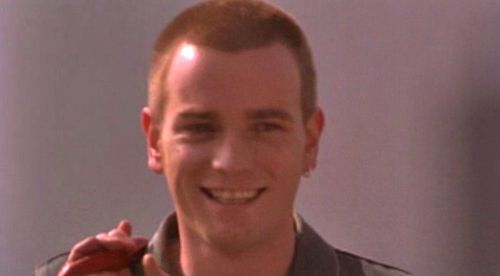short notes on Trainspotting
A really good film that I, rather criminally, only saw
through a couple of evenings ago. Still need to read the book which Messr
Carney assures me is much better.
The interview scene was truly golden. The pre-game
discussion of the job-jiro is the 21st century at its finest, a
30-second sketch of the same sentiment echoed by Noel Gallagher in Cigarettes
and Alcohol, followed by a quick rush of class A drugs to help prepare for an
important meeting – an image as honest to working-class Scotland as it is to
the City of London. Spud’s manic gesturing and his brain-spark admission that
he only has one fault: perfectionism. Anyone who has ever sat in an interview
will no doubt have faced this absurd question (what is your biggest fault) and
may well, like Spud and myself, have thrown together a trashcan of platitudes
about “trying too hard for the best” and “being a bit tunnel-vision”.
The film’s central idea is to explore the character of
modern, Western life. Our desires jump from one imprisoned embroil of greed and
quick-win relief to another. Heroin, drug-dealing, money-making, working-life,
office-life, married life old-age death. Each stage is exposed as a red, angry
hive, where selfishness and iron-eyed ruthlessless win out over any concern for
love, empathy and society. Renton’s dream-face, self-satisfied and smothered in
the clouds of rush-hour London as he walks into his new life in the final
scene, a new life of cleanliness and properness. A life Renton stamped into real
by crushing the dreams of his closest friends, friends who he never liked and
never wanted the company of, and who probably never liked him either.
Society’s silver lining maybe rests in the film’s post-script,
the shot of Spud collecting his fair share of the money from a locker. Spud,
the only man with whom it ever seemed Renton enjoyed spending time with and one
of the only guys, alongside Tommy, he could probably call a true friend, is too
given the chance to build a fresh life outside of the endless, red stream of
fighting and drugs. Yet how far either Renton or Spud would have got on a few
thousand of pounds is left to the viewer’s imagination. In a world where
progress is driven by the spillage of blood, where men scrap and rage against
in each other so that they may climb out of their rotten-state and into the
blue calm, one suspects that both of the two friends and indeed, their mutual
solidarity, would soon fall to the turning wheels of modern capitalism. The
faintest hint of air is only momentary: we can never be clean.

Comments
Post a Comment